Discover Homebrewed Christianity
Homebrewed Christianity

 Homebrewed Christianity
Homebrewed Christianity
Author: Dr. Tripp Fuller | Theologian, Philosopher, Minister
Subscribed: 1,621Played: 78,921Subscribe
Share
© 2008 and beyond
Description
Our goal is to bring the wisdom of the academy's ivory tower into your earbuds. Think of each episode as an audiological ingredient for your to brew your own faith. Most episodes center around an interview with a different scholar, theologian, or philosopher.
921 Episodes
Reverse
In this first session of "The Rise of the Nones" online class, I am joined by Ryan Burge, Tony Jones, and Sarah Lane Ritchie to introduce findings from the largest survey ever conducted on religiously unaffiliated Americans—over 15,000 participants. The research, funded by the John Templeton Foundation's Spiritual Yearning Research Initiative, used machine learning to identify four distinct categories of "Nones": NINOs (Nones In Name Only, who are actually quite religious), Spiritual But Not Religious (the largest group), the Disengaged (content secular individuals far from any religious or spiritual practice), and Zealous Secularists (a small but vocal group actively encouraging others to leave religion). The conversation explores what these categories reveal about American religious identity, why traditional survey methods may be undercounting Christians, and the surprising finding that many "happy atheists" report life satisfaction comparable to religious Americans. Join us for the remaining sessions of this class, where we'll dive deeper into each category with special guests—registration is donation-based, including $0, at www.AmericanNones.com.
You can WATCH the conversation on YouTube
Join us at Theology Beer Camp, October 8-10, in Kansas City!
UPCOMING ONLINE CLASS: The Rise of the Nones
One-third of Americans now claim no religious affiliation. That's 100 million people.
But here's what most church leaders get wrong: they're not all the same. Some still believe in God. Some are actively searching. Some are quietly indifferent. Some think religion is harmful.
Ryan Burge & Tony Jones have conducted the first large-scale survey of American "Nones", which reveals 4 distinct categories—each requiring a different approach. Understanding the difference could transform everything from your ministry to your own spiritual quest.
Get info & join the donation-based class (including 0) here.
This podcast is a Homebrewed Christianity production. Follow the Homebrewed Christianity, Theology Nerd Throwdown, & The Rise of Bonhoeffer podcasts for more theological goodness for your earbuds. Join over 75,000 other people by joining our Substack - Process This! Get instant access to over 50 classes at www.TheologyClass.com
Follow the podcast, drop a review, send feedback/questions or become a member of the HBC Community.
Learn more about your ad choices. Visit megaphone.fm/adchoices
Tad Delay came on to talk about his lecture from the Democracy in Tension summit, and we got into political philosophy and why democracy keeps sliding toward tyranny. Tad teaches Plato's Republic in his intro philosophy classes, and he makes this compelling case that Plato basically had us figured out - the fundamental problem is why do people desire their own servitude as though it were their salvation? We traced the history of democratic movements from the French Revolution through the revolutions of 1848 (which most people know nothing about), and Tad connected it all to our current moment with Gaza, Zionism, and how both parties seem to have lost any sense of shame about lying. The conversation got pretty dark but also weirdly hopeful - we talked about social media as a performance of fake happiness, the need to bring back shame about lying and abuse, and how billionaires like Peter Thiel don't even understand the basics of how power works. Plus we ended with the cheerful speculation that Trump could probably admit to his crimes and people would respect him more for it. Like I said, cheery stuff.
You can get access to Tad's lecture and the entire Democracy in Tension series here.
You can WATCH the conversation on YouTube
Join us at Theology Beer Camp, October 8-10, in Kansas City!
UPCOMING ONLINE CLASS: The Rise of the Nones
One-third of Americans now claim no religious affiliation. That's 100 million people.
But here's what most church leaders get wrong: they're not all the same. Some still believe in God. Some are actively searching. Some are quietly indifferent. Some think religion is harmful.
Ryan Burge & Tony Jones have conducted the first large-scale survey of American "Nones", which reveals 4 distinct categories—each requiring a different approach. Understanding the difference could transform everything from your ministry to your own spiritual quest.
Get info & join the donation-based class (including 0) here.
This podcast is a Homebrewed Christianity production. Follow the Homebrewed Christianity, Theology Nerd Throwdown, & The Rise of Bonhoeffer podcasts for more theological goodness for your earbuds. Join over 75,000 other people by joining our Substack - Process This! Get instant access to over 50 classes at www.TheologyClass.com
Follow the podcast, drop a review, send feedback/questions or become a member of the HBC Community.
Learn more about your ad choices. Visit megaphone.fm/adchoices
This conversation took place at Theology Beer Camp 2025 on artificial intelligence, moderated by Michael Morelli with Ben Chicka and Noreen Herzfield, and it's one of the most grounded conversations I've heard about AI from a theological perspective. Noreen has this incredible background in computer engineering before becoming a theologian, and she's not buying the Silicon Valley hype. They talked about how AI trained on human feedback becomes sycophantic and biased, how the whole AGI-by-2027 promise is already falling apart, and why the AI bubble is probably about to burst. But the hopeful part is this: they argued that AI can't replace the actual human connection that changes lives - the teacher who hands you the right book at the right time, the older person who shares a cassette that transforms you. Ben made this beautiful point about how we're all here because of little encounters that were mustard seeds, and AI can't replicate that kind of formation. Plus there was a computer programmer in the audience who basically said "there's no intelligence here, it's just yes/no questions" and everyone was like, exactly. It's neither artificial nor intelligent - it's just code.
Join us at Theology Beer Camp, October 8-10, in Kansas City!
UPCOMING ONLINE CLASS: The Rise of the Nones
One-third of Americans now claim no religious affiliation. That's 100 million people.
But here's what most church leaders get wrong: they're not all the same. Some still believe in God. Some are actively searching. Some are quietly indifferent. Some think religion is harmful.
Ryan Burge & Tony Jones have conducted the first large-scale survey of American "Nones", which reveals 4 distinct categories—each requiring a different approach. Understanding the difference could transform everything from your ministry to your own spiritual quest.
Get info & join the donation-based class (including 0) here.
This podcast is a Homebrewed Christianity production. Follow the Homebrewed Christianity, Theology Nerd Throwdown, & The Rise of Bonhoeffer podcasts for more theological goodness for your earbuds. Join over 75,000 other people by joining our Substack - Process This! Get instant access to over 50 classes at www.TheologyClass.com
Follow the podcast, drop a review, send feedback/questions or become a member of the HBC Community.
Learn more about your ad choices. Visit megaphone.fm/adchoices
Hey everybody, this is a special Christmas episode where I'm joined by Michael Morelli (Personalist Manifesto podcast) and Paul Hoard (professor at The Seattle School of Theology and Psychology) for a live conversation about what the Incarnation has to say to our algorithmically-mediated moment. We get into Advent as a season of waiting in a world obsessed with immediacy and prediction—drawing on Lacan's understanding of desire, Hartmut Rosa on resonance, and Byung-Chul Han's "hell of the same" to explore how our devices have trained us to be unable to tolerate longing. We talk about incarnation versus ex-carnation (yes, we went there), why smoothness is a trap, how the manger subverts our fantasies of a powerful God, and what Bonhoeffer's Christ-reality hermeneutic might offer disciples trying to encounter genuine otherness in a world of narcissistic loops and NPC-ification. Paul brings the psychoanalytic heat on disgust, love, and why intimacy requires being changed by the other, and Michael reminds us that the cosmos hasn't actually been hijacked by Silicon Valley—despite appearances. We also talk about Black Mirror, The Good Place, board games, and whether Star Trek is secretly fascist. It's nerdy, it's hopeful, and it's exactly the kind of thing you need while driving to Christmas gatherings with sleeping family members in the car.
You can WATCH the conversation on YouTube
Join us at Theology Beer Camp, October 8-10, in Kansas City!
UPCOMING ONLINE CLASS: The Rise of the Nones
One-third of Americans now claim no religious affiliation. That's 100 million people.
But here's what most church leaders get wrong: they're not all the same. Some still believe in God. Some are actively searching. Some are quietly indifferent. Some think religion is harmful.
Ryan Burge & Tony Jones have conducted the first large-scale survey of American "Nones", which reveals 4 distinct categories—each requiring a different approach. Understanding the difference could transform everything from your ministry to your own spiritual quest.
Get info & join the donation-based class (including 0) here.
This podcast is a Homebrewed Christianity production. Follow the Homebrewed Christianity, Theology Nerd Throwdown, & The Rise of Bonhoeffer podcasts for more theological goodness for your earbuds. Join over 75,000 other people by joining our Substack - Process This! Get instant access to over 50 classes at www.TheologyClass.com
Follow the podcast, drop a review, send feedback/questions or become a member of the HBC Community.
Learn more about your ad choices. Visit megaphone.fm/adchoices
What happens when the person preaching on Sunday morning believes something completely different than the folks sitting in the pews? Well friends, that's exactly what we're digging into today. My buddy Ryan Burge brought the graphs—including some brand new data that hasn't even dropped on his Substack yet—and let me tell you, it's a real deal predicament for Mainline Protestantism. Turns out about 60-70% of mainline clergy identify as liberal, but only about 25% of the people in the pews do. That's not a gap, that's a canyon. We're talking ELCA, UCC, PCUSA, Episcopalians—the whole crew. And look, Ryan and I are both mainline folks, so we're not throwing rocks across the river here. We're throwing rocks at our own faces. We get into why this disconnect exists, what the "silver tsunami" of aging Boomers means for these congregations, and why young progressive folks aren't joining our churches even though we thought we built them a home. It's honest, it's a little uncomfortable, and yeah, we also talk about Zion Williamson and Christmas movies because that's just how we roll. If you want to go deeper on where American religion is headed, join me and Ryan along with Tony Jones for our upcoming class The Rise of the Nones this January at www.AmericanNones.com. Come on.
You can WATCH the conversation and see the graphs on YouTube
Dr. Ryan Burge is a professor of practice at the Danforth Center on Religion and Politics at Washington University in St. Louis. He is the author or co-author of four books including The Nones, The American Religious Landscape, and The Great Dechurching. He has written for the New York Times, the Wall Street Journal and POLITICO. He has also appeared on 60 Minutes, where Anderson Cooper called him, “one of the leading data analysts of religion and politics in the United States.”
Previous Visits from Ryan Burge
Gen Z Revival?: The Next Chapter in American Religious Life
The 2024 Election & Religion Post-Mortem
Distrust & Denominations
Trust, Religion, & a Functioning Democracy
What it’s like to close a church
The Future of Christian Education & Ministry in Charts
The Sky is Falling & the Charts are Popping!
Graphs about Religion & Politics w/ Spicy Banter
a Year in Religion (in Graphs)
Evangelical Jews, Educated Church-Goers, & other bits of dizzying data
5 Religion Graphs w/ a side of Hot Takes
Myths about Religion & Politics
Join us at Theology Beer Camp, October 8-10, in Kansas City!
UPCOMING ONLINE CLASS: The Rise of the Nones
One-third of Americans now claim no religious affiliation. That's 100 million people.
But here's what most church leaders get wrong: they're not all the same. Some still believe in God. Some are actively searching. Some are quietly indifferent. Some think religion is harmful.
Ryan Burge & Tony Jones have conducted the first large-scale survey of American "Nones", which reveals 4 distinct categories—each requiring a different approach. Understanding the difference could transform everything from your ministry to your own spiritual quest.
Get info & join the donation-based class (including 0) here.
This podcast is a Homebrewed Christianity production. Follow the Homebrewed Christianity, Theology Nerd Throwdown, & The Rise of Bonhoeffer podcasts for more theological goodness for your earbuds. Join over 75,000 other people by joining our Substack - Process This! Get instant access to over 50 classes at www.TheologyClass.com
Follow the podcast, drop a review, send feedback/questions or become a member of the HBC Community.
Learn more about your ad choices. Visit megaphone.fm/adchoices
I am SO excited about this episode.
I got to sit down with Rian Johnson to talk about Wake Up Dead Man: A Knives Out Mystery, and honestly? This might be my favorite conversation I’ve had all year. Not just because it’s a blast of a film (which it absolutely is), but because Rian brought so much theological depth and personal wrestling to this project.
I’m always looking for that sweet spot where great storytelling meets profound questions about faith, power, community, and what it means to be human. This film? It’s the jackpot. I literally told Rian I now have an excuse to show a movie I genuinely enjoy in class and call it “movie day.”
You can WATCH the conversation on YouTube
The Film: Wake Up Dead Man: A Knives Out Mystery is now streaming on Netflix. Watch it. It’s spectacular.
Rian Johnson is an acclaimed writer-director best known for creating the Knives Out mystery franchise, including Knives Out (2019), Glass Onion: A Knives Out Mystery (2022), and Wake Up Dead Man: A Knives Out Mystery (2025). His work is characterized by genre-bending storytelling that weaves together intricate plots with deep thematic exploration.
Johnson’s other notable films include Brick (2005), a neo-noir set in a high school; Looper (2012), a science fiction thriller; and Star Wars: The Last Jedi (2017). He also directed several critically acclaimed episodes of Breaking Bad, including the Emmy-winning “Ozymandias.”
Raised in the evangelical church, Johnson draws on his formative religious experiences to explore themes of grace, moral complexity, and the tension between reason and faith in his work. He cites influences ranging from G.K. Chesterton’s Father Brown mysteries to Carl Jung and Joseph Campbell’s work on storytelling and myth.
Known for his meticulous approach to storytelling—he still writes his screenplays longhand in notebooks—Johnson creates films that function as both wildly entertaining genre exercises and thoughtful examinations of contemporary moral and social questions.
Join us at Theology Beer Camp, October 8-10, in Kansas City!
UPCOMING ONLINE CLASS: The Rise of the Nones
One-third of Americans now claim no religious affiliation. That's 100 million people.
But here's what most church leaders get wrong: they're not all the same. Some still believe in God. Some are actively searching. Some are quietly indifferent. Some think religion is harmful.
Ryan Burge & Tony Jones have conducted the first large-scale survey of American "Nones", which reveals 4 distinct categories—each requiring a different approach. Understanding the difference could transform everything from your ministry to your own spiritual quest.
Get info & join the donation-based class (including 0) here.
This podcast is a Homebrewed Christianity production. Follow the Homebrewed Christianity, Theology Nerd Throwdown, & The Rise of Bonhoeffer podcasts for more theological goodness for your earbuds. Join over 75,000 other people by joining our Substack - Process This! Get instant access to over 50 classes at www.TheologyClass.com
Follow the podcast, drop a review, send feedback/questions or become a member of the HBC Community.
Learn more about your ad choices. Visit megaphone.fm/adchoices
Look, we all have that person in our life who won’t stop talking about Motlmann or keeps “accidentally” bringing up liberation theology at Thanksgiving. Maybe that person is you. No judgment. I’m right there with you.
That’s why I brought in my friend Rev. Dr. Thomas Hermans-Webster, acquisitions editor at Orbis Books, to help us figure out what books belong under the tree this year. We each picked 10 books that will make your theology nerd feel seen, challenged, and deeply grateful you know them so well.
HERE’S THE GOOD NEWS: Orbis put the whole collection on sale. Use code ZESTY at checkout and get 30% off. The code is good through the 12 days of Christmas and all the way to Mardi Gras—we’re being liturgical about this.
🎁 Shop the full collection here
You can WATCH the conversation on YouTube
Join us at Theology Beer Camp, October 8-10, in Kansas City!
UPCOMING ONLINE CLASS: The Rise of the Nones
One-third of Americans now claim no religious affiliation. That's 100 million people.
But here's what most church leaders get wrong: they're not all the same. Some still believe in God. Some are actively searching. Some are quietly indifferent. Some think religion is harmful.
Ryan Burge & Tony Jones have conducted the first large-scale survey of American "Nones", which reveals 4 distinct categories—each requiring a different approach. Understanding the difference could transform everything from your ministry to your own spiritual quest.
Get info & join the donation-based class (including 0) here.
ONLINE ADVENT CLASS w/ Diana Butler Bass
Join us for a transformative four-week Advent journey exploring how the four gospels speak their own revolutionary word against empire—both in their ancient context under Roman occupation and for our contemporary world shaped by capitalism, militarism, and nationalism.
This course invites you into an alternative calendar and rhythm. We'll discover how these ancient texts of resistance offer wisdom for our own moment of political turmoil, economic inequality, and ecological crisis. This class is donation-based, including 0. You can sign-up at www.HomebrewedClasses.com
This podcast is a Homebrewed Christianity production. Follow the Homebrewed Christianity, Theology Nerd Throwdown, & The Rise of Bonhoeffer podcasts for more theological goodness for your earbuds. Join over 75,000 other people by joining our Substack - Process This! Get instant access to over 50 classes at www.TheologyClass.com
Follow the podcast, drop a review, send feedback/questions or become a member of the HBC Community.
Learn more about your ad choices. Visit megaphone.fm/adchoices
So here's what we're wrestling with in this episode: What if economics isn't just a topic theology comments on, but actually the bigger framework that shapes what's theologically possible? That's the question that sent Brian McLaren searching, and it's what led him—and us—to the Japanese philosopher Kojin Karatani and his game-changing framework about modes of exchange laid out in his book, The Structure of World History We're talking about how nation, state, and capital work together as these integrated energies, and how if you try to critique just one without seeing the others, you end up reproducing the very thing you're trying to escape. The biblical narrative becomes this fascinating case study—starting with naked hunter-gatherers in a garden with no religion, state, or market, and ending with the New Jerusalem coming down with no need for a temple. And maybe, just maybe, understanding these modes of exchange—the symbolic, the coercive, the economic—helps us see what kind of future we're actually moving toward. It's the kind of conversation that makes you realize the church's learned ignorance about economics might be the source of its greatest spiritual crisis, and you know what? That's worth paying attention to.
You can WATCH the conversation on YouTube
You can find the YouTube playlist of videos outlining Karatani’s work here.
Joining me for this conversation is...
Guillermo Bervejillo is an economic geographer and community organizer who bridges critical theory and social movement practice. If you missed our previous conversation, where we introduced Karatani’s work check it out - Kojin Karatani’s The Structure of World History.
Brian D. McLaren is an author, speaker, activist, and public theologian. Don’t miss his AMAZING new book, The Last Voyage.
Dawson Allen is the movement manager at the Center for Action & Contemplation.
Join us at Theology Beer Camp, October 8-10, in Kansas City!
ONLINE ADVENT CLASS w/ Diana Butler Bass
Join us for a transformative four-week Advent journey exploring how the four gospels speak their own revolutionary word against empire—both in their ancient context under Roman occupation and for our contemporary world shaped by capitalism, militarism, and nationalism.
This course invites you into an alternative calendar and rhythm. We'll discover how these ancient texts of resistance offer wisdom for our own moment of political turmoil, economic inequality, and ecological crisis. This class is donation-based, including 0. You can sign-up at www.HomebrewedClasses.com
This podcast is a Homebrewed Christianity production. Follow the Homebrewed Christianity, Theology Nerd Throwdown, & The Rise of Bonhoeffer podcasts for more theological goodness for your earbuds. Join over 75,000 other people by joining our Substack - Process This! Get instant access to over 50 classes at www.TheologyClass.com
Follow the podcast, drop a review, send feedback/questions or become a member of the HBC Community.
Learn more about your ad choices. Visit megaphone.fm/adchoices
What is up, Theology Nerds! This one's a banger. At Theology Beer Camp 2025, I got to sit down with an EPIC braintrust of Bonhoeffer scholars—Jeff Pugh, Lori Brandt Hale, Reggie Williams, and Andy Root—for a panel that went deep into Dietrich's life, his communities, and why his witness matters more now than ever. We wrestled with how Bonhoeffer's critique of stupidity as a sociological force, his understanding of Christ as the center that opens us to the other, and his call to prayer and righteous action speak directly into our current moment of rising nationalism and the masquerade of evil. These scholars didn't flinch from the hard questions: What do we do when the church has failed? How do we resist without contempt? And what does a faithful community look like when you might be hiding people in your house? If this conversation lights a fire in your theological belly, then you need to be with us at Theology Beer Camp 2026—October 8-10th in Kansas City. Head over here and grab those pre-sale tickets. This is what we do: beer, community, and theology that matters. Come join us.
You can WATCH the conversation on YouTube
ONLINE ADVENT CLASS w/ Diana Butler Bass
Join us for a transformative four-week Advent journey exploring how the four gospels speak their own revolutionary word against empire—both in their ancient context under Roman occupation and for our contemporary world shaped by capitalism, militarism, and nationalism.
This course invites you into an alternative calendar and rhythm. We'll discover how these ancient texts of resistance offer wisdom for our own moment of political turmoil, economic inequality, and ecological crisis. This class is donation-based, including 0. You can sign-up at www.HomebrewedClasses.com
This podcast is a Homebrewed Christianity production. Follow the Homebrewed Christianity, Theology Nerd Throwdown, & The Rise of Bonhoeffer podcasts for more theological goodness for your earbuds. Join over 75,000 other people by joining our Substack - Process This! Get instant access to over 50 classes at www.TheologyClass.com
Follow the podcast, drop a review, send feedback/questions or become a member of the HBC Community.
Learn more about your ad choices. Visit megaphone.fm/adchoices
Well, we kicked off our Advent Against Empire series with Diana Butler Bass diving deep into Matthew's birth narrative, and wow—it did not disappoint. Diana brought her three signature lenses (anti-imperialism, non-violence, and eco-wholeness) to the most Jewish of all the gospels, and things got delightfully nerdy. We explored how Matthew's genealogy isn't just a boring list of "begats"—it's a subversive royal document packed with scandalous women and outsiders that announces Jesus as the true king in direct confrontation with Rome and Herod. Diana walked us through a brilliant two-act structure: Act One is all about the birth of Wisdom and Joseph (a dreamer who winds up in Egypt—sound familiar?) receiving divine announcements. Act Two gives us the Apocalyptic clash between the World as it is and the World to come, with the Magi's cosmic rebellion against Herod, the horrific violence that follows when the empire doesn't get its way, and the holy family's return. We also geeked out on Jesus as the embodiment of Sophia—Wisdom incarnate—and how Matthew's five-discourse structure mirrors the Torah itself. If you've always thought of Matthew as the "Christmas pageant gospel," prepare to have your assumptions lovingly dismantled.
Want to go deeper? Join Diana and me for our full four-week Advent journey, The Beginning of Another World: Advent Against Empire. Each week we're letting a different gospel speak its revolutionary word—no harmonizing, no smoothing over the rough edges. The class is fully asynchronous so that you can participate on your own schedule or join us live for our recordings. Sign up HERE and contribute whatever you can (including 0). Come get nerdy with us!
You can WATCH the conversation on YouTube here
Diana Butler Bass, Ph.D., is an award-winning author, popular speaker, inspiring preacher, and one of America’s most trusted commentators on religion and contemporary spirituality.
Previous Episodes with Diana & Tripp
How the Lectionary Kept Me Christian: Diana Butler Bass on Practicing the Year
Two Books, One Night: Finding Beauty in What We Can’t Control
Religious Liberty & Violence – Unpacking the First 100 Days of Trump 2.0
The Interlocking Crises of Religion & Democracy
Faith in a Toxic Public Square
The Resurrection of Jesus
2024: The Sequel
The Christology Ladder
ONLINE ADVENT CLASS w/ Diana Butler Bass
Join us for a transformative four-week Advent journey exploring how the four gospels speak their own revolutionary word against empire—both in their ancient context under Roman occupation and for our contemporary world shaped by capitalism, militarism, and nationalism.
This course invites you into an alternative calendar and rhythm. We'll discover how these ancient texts of resistance offer wisdom for our own moment of political turmoil, economic inequality, and ecological crisis. This class is donation-based, including 0. You can sign-up at www.HomebrewedClasses.com
This podcast is a Homebrewed Christianity production. Follow the Homebrewed Christianity, Theology Nerd Throwdown, & The Rise of Bonhoeffer podcasts for more theological goodness for your earbuds. Join over 75,000 other people by joining our Substack - Process This! Get instant access to over 50 classes at www.TheologyClass.com
Follow the podcast, drop a review, send feedback/questions or become a member of the HBC Community.
Learn more about your ad choices. Visit megaphone.fm/adchoices
N.T. Wright returns to the podcast for round three—no Malibu rooftop this time, but plenty of theological fireworks. We dig into Tom's new book on Ephesians, starting with why he thinks the scholarly consensus dismissing Pauline authorship is more about 19th-century German liberal Protestant hangover than good historical work. From there, we get into the real meat: Ephesians isn't answering the question "how do I get to heaven?" It's painting this massive cosmic picture of God's plan to unite heaven and earth in Christ—and the church's wild vocation to be what Tom calls "a small working model of new creation." We talk about how Western Christianity has shrunk Paul's vision into individual soul-sorting when the text is way more interested in what it looks like when formerly irreconcilable people come together as one new humanity. Tom pushes back on how both conservatives and liberals read their politics into the text, and we wrestle with the marriage passage in chapter 5 as the theological climax of the letter (not the culture war flashpoint we've made it). We close with a beautiful reflection on Ephesians 6 as an Advent text—the church holding the line between Christ's victory and his return. Plus, Tom's grandson sings in the New College Oxford choir, and honestly, that's the kind of intergenerational beauty Ephesians is pointing toward.
You can WATCH the conversation on YouTube
Prof. N.T. (Tom) Wright is Senior Research Fellow at Wycliffe Hall, Oxford University. He is one of the world’s leading Bible scholars, with expertise in Ancient Judaism and Early Christianity, the New Testament, and Biblical Studies. He is also Emeritus Professor at the University of St. Andrews and the former Bishop of Durham.
Tom’s Previous Visits to the Podcast
Devilpalooza
NT Wright Talks Jesus and the scholars who discuss him
UPCOMING ONLINE ADVENT CLASS w/ Diana Butler Bass
Join us for a transformative four-week Advent journey exploring how the four gospels speak their own revolutionary word against empire—both in their ancient context under Roman occupation and for our contemporary world shaped by capitalism, militarism, and nationalism.
This course invites you into an alternative calendar and rhythm. We'll discover how these ancient texts of resistance offer wisdom for our own moment of political turmoil, economic inequality, and ecological crisis. This class is donation-based, including 0. You can sign-up at www.HomebrewedClasses.com
This podcast is a Homebrewed Christianity production. Follow the Homebrewed Christianity, Theology Nerd Throwdown, & The Rise of Bonhoeffer podcasts for more theological goodness for your earbuds. Join over 75,000 other people by joining our Substack - Process This! Get instant access to over 50 classes at www.TheologyClass.com
Follow the podcast, drop a review, send feedback/questions or become a member of the HBC Community.
Learn more about your ad choices. Visit megaphone.fm/adchoices
Alright Tolkien Heads, this one's important. Dr. Craig Boyd joins us to dig into Tolkien's political philosophy and—look, we gotta talk about how the alt-right has been trying to claim Tolkien as one of their own, which is just... no. Craig offers a much-needed corrective by actually reading what the man wrote and believed. The heart of the conversation is this contrast between Gandalf and Saruman as two models of leadership: one rooted in service and humility, the other in domination and control. And yeah, this feels pretty relevant right now. We get into why the easy path of controlling people is so seductive, and why the harder road—actually loving and respecting the folks you're leading—is what builds real community. Saruman thought he could use the enemy's tools for good ends; spoiler alert, it doesn't work that way. Power-hoarding corrupts everything it touches. Gandalf shows us another way: sacrifice, humility, genuine care for human flourishing over accumulating influence. Whether you're a Tolkien nerd, into political philosophy, or just trying to figure out what faithful leadership looks like in this moment, this one's for you.
You can WATCH the conversation on YouTube
UPCOMING ONLINE ADVENT CLASS w/ Diana Butler Bass
Join us for a transformative four-week Advent journey exploring how the four gospels speak their own revolutionary word against empire—both in their ancient context under Roman occupation and for our contemporary world shaped by capitalism, militarism, and nationalism.
This course invites you into an alternative calendar and rhythm. We'll discover how these ancient texts of resistance offer wisdom for our own moment of political turmoil, economic inequality, and ecological crisis. This class is donation-based, including 0. You can sign-up at www.HomebrewedClasses.com
This podcast is a Homebrewed Christianity production. Follow the Homebrewed Christianity, Theology Nerd Throwdown, & The Rise of Bonhoeffer podcasts for more theological goodness for your earbuds. Join over 70,000other people by joining our Substack - Process This! Get instant access to over 50 classes at www.TheologyClass.com
Follow the podcast, drop a review, send feedback/questions or become a member of the HBC Community.
Learn more about your ad choices. Visit megaphone.fm/adchoices
This is an audio essay from my Process This substack. In it, I reflect on Alfred North Whitehead and what he can teach us about religion in our time. You see, Whitehead didn't see religion as just doctrines or institutions—he understood it as a creative force that connects our deepest ideals with the passion that actually moves us to act in the world. And here's what's beautiful: he shows us that the divine isn't a force that dominates or controls, but a gentle invitation woven through all of reality, calling us toward truth, beauty, and goodness. We're not passive recipients of this, we're active partners, and every act of kindness, every moment of genuine connection actually adds something real to the universe that wouldn't exist without us. The real transformation in history, whether it's been the Civil Rights Movement or the climate movement today, happens not through force and domination, but through the slower, harder, more beautiful path of persuasion—changing hearts and minds one person at a time. And here's what gives me hope: nothing we do in love is ever lost. It all becomes part of this larger story of the universe moving toward wholeness. So in this post-religious age, we desperately need this capacity to be moved by beauty and called by goodness. The question isn't what we believe, it's whether we'll let ourselves be caught up in this larger movement of love.
To join the Whitehead reading group, become a supporting member of the Process This Substack. In addition to Zoom invites to the reading group and archives of each session, you will get an ad-free podcast feed of the podcast and invites to all the other live streams with friends like Diana Butler Bass & Ryan Burge.
UPCOMING ONLINE ADVENT CLASS w/ Diana Butler Bass
Join us for a transformative four-week Advent journey exploring how the four gospels speak their own revolutionary word against empire—both in their ancient context under Roman occupation and for our contemporary world shaped by capitalism, militarism, and nationalism.
This course invites you into an alternative calendar and rhythm. We'll discover how these ancient texts of resistance offer wisdom for our own moment of political turmoil, economic inequality, and ecological crisis. This class is donation-based, including 0. You can sign-up at www.HomebrewedClasses.com
This podcast is a Homebrewed Christianity production. Follow the Homebrewed Christianity, Theology Nerd Throwdown, & The Rise of Bonhoeffer podcasts for more theological goodness for your earbuds. Join over 70,000other people by joining our Substack - Process This! Get instant access to over 50 classes at www.TheologyClass.com
Follow the podcast, drop a review, send feedback/questions or become a member of the HBC Community.
Learn more about your ad choices. Visit megaphone.fm/adchoices
What is up, Theology Nerds! So this episode we got my friend Diana Butler Bass back in the house to talk about her brand new book A Beautiful Year and this open online Advent class we're doing together over the next four weeks. Here's the deal: Diana's gonna walk us through how the Christian liturgical year—especially the lectionary—actually saved her faith during the pandemic when the church doors closed. She unpacks the lectionary as a real deep, anti-imperial, feminist, creation-care kind of reading that shows how Jesus is literally challenging Caesar through the gospel accounts. We break down why that matters for how we read the four Gospels and their unique takes on the Incarnation, and this is the crucial part: how all of this ancient story stuff actually orients us for what's happening right now with Christian nationalism and all that ugliness. The Advent class is donation-based (yeah, pay what you want), and you can catch it live each week or grab the video and audio later. Head to homebrewedclasses.com to sign up. Trust me, you're gonna want in on this conversation.
Diana Butler Bass, Ph.D., is an award-winning author, popular speaker, inspiring preacher, and one of America’s most trusted commentators on religion and contemporary spirituality.
UPCOMING ONLINE ADVENT CLASS w/ Diana Butler Bass
Join us for a transformative four-week Advent journey exploring how the four gospels speak their own revolutionary word against empire—both in their ancient context under Roman occupation and for our contemporary world shaped by capitalism, militarism, and nationalism.
This course invites you into an alternative calendar and rhythm. We'll discover how these ancient texts of resistance offer wisdom for our own moment of political turmoil, economic inequality, and ecological crisis. This class is donation-based, including 0. You can sign-up at www.HomebrewedClasses.com
This podcast is a Homebrewed Christianity production. Follow the Homebrewed Christianity, Theology Nerd Throwdown, & The Rise of Bonhoeffer podcasts for more theological goodness for your earbuds. Join over 70,000other people by joining our Substack - Process This! Get instant access to over 50 classes at www.TheologyClass.com
Follow the podcast, drop a review, send feedback/questions or become a member of the HBC Community.
Learn more about your ad choices. Visit megaphone.fm/adchoices
On today's episode, we're talking with investigative journalist Ross Halperin about his new book Bear Witness: The Pursuit of Justice in a Violent Land. Ross takes us on a fascinating journey from academic research on impunity—the unsolved homicides plaguing American cities—to Honduras, where he discovers an unexpected solution. We dig into why the US solve rate for murders hovers around 60% compared to over 90% in other wealthy democracies, and spoiler alert: it's not about more surveillance or militarization. The real issue is witness testimony, and that requires trust. Ross introduces us to Kurt and Carlos, whose charity work proves that community trust, built through years of genuine service and investment, is the key to bridging the gap between communities and law enforcement. We talk about how faith animates their work without being preachy, the humility required to stay open to criticism, and why top-down solutions often miss what actually moves people to speak up. It's a conversation about what it means to bear witness—not just to tell a story, but to show up and be trusted.
You can WATCH the conversation on YouTube
Ross Halperin is an investigative journalist and author of Bear Witness: The Pursuit of Justice in a Violent Land. A Harvard University graduate, he worked on Wall Street before transitioning to research on criminal justice, where he worked under Mark A.R. Kleiman, one of the world's leading criminal-justice scholars. His interest in unsolved homicides and systemic violence grew from this research, which revealed that the United States has dramatically lower murder solve rates than comparable wealthy democracies.
That research led Halperin to a presentation by Kurt Biehl at a summit organized by criminologist David Kennedy, sparking a years-long investigation into how one community in Central America tackled violence through trust-building and faith. Bear Witness is the result of his embedded reporting in Honduras, exploring how real change happens not through top-down mandates, but through patient commitment to community relationships.
Halperin's own commitment to community building is evident in his work closer to home as well—he led a campaign to reconstruct the library in his hometown, reflecting his belief in the power of institutions and gathering spaces.
UPCOMING ONLINE ADVENT CLASS w/ Diana Butler Bass
Join us for a transformative four-week Advent journey exploring how the four gospels speak their own revolutionary word against empire—both in their ancient context under Roman occupation and for our contemporary world shaped by capitalism, militarism, and nationalism.
This course invites you into an alternative calendar and rhythm. We'll discover how these ancient texts of resistance offer wisdom for our own moment of political turmoil, economic inequality, and ecological crisis. This class is donation-based, including 0. You can sign-up at www.HomebrewedClasses.com
This podcast is a Homebrewed Christianity production. Follow the Homebrewed Christianity, Theology Nerd Throwdown, & The Rise of Bonhoeffer podcasts for more theological goodness for your earbuds. Join over 70,000other people by joining our Substack - Process This! Get instant access to over 50 classes at www.TheologyClass.com
Follow the podcast, drop a review, send feedback/questions or become a member of the HBC Community.
Learn more about your ad choices. Visit megaphone.fm/adchoices
Hey Theology Nerds! On this episode, we're wrestling with one of those questions that'll mess with your theology AND your politics - Vincent Harding's knockout punch of a question: 'Is America possible?' I'm talking about the REAL America, not the one on your uncle's Facebook feed, but the wild, beautiful, messy dream of a multiracial, multi-ethnic, pluralistic, egalitarian democracy that actually, you know, WORKS.
We're getting into all of it - how democracy and capitalism are duking it out, what Christianity has to say when it's not too busy blessing the status quo, and why asking better questions might just save us from ourselves. This is about imagination, the kind that gets people in trouble with empire. We're talking solidarity that actually costs something, conversations that require actual courage (not just Twitter courage), and why your algorithm might be more theologically problematic than that praise band you love to hate.
If you've ever wondered whether faith communities could stop playing defense and start building the world we actually need, or if you're ready to imagine America as something more than a 250-year-old experiment in barely not falling apart - this one's for you. We're bringing the theological fire to the most urgent questions of our time, because apparently that's what we do around here.
Corey D. B. Walker is Dean of the School of Divinity at Wake Forest University. As a scholar, he’s committed to a broad vision of human flourishing. His research, teaching, and public scholarship span the areas of African American philosophy, critical theory, ethics, and religion and American public life.
Bill Leonard is the Founding Dean and Professor of Divinity Emeritus at Wake Divinity. Leonard’s research focuses on Church History with particular attention to American religion, Baptist studies, and Appalachian religion. He is the author of over 25 books, including The Homebrewed Christianity Guide to Church History: Flaming Heretics and Heavy Drinkers.
Previous Episodes
Bill & Corey: Theology in the Age of Anxiety and Algorithms
Bill & Corey: Losing Sleep Before God
Welcome to the Post-Christian Century
the Fundamentalization of American Religion
Listening Beyond the Times
The History and Transformation of American Christianity
Faith and Politics Through Church History
ACCESS to the cheapest tickets.
UPCOMING ONLINE ADVENT CLASS w/ Diana Butler Bass
Join us for a transformative four-week Advent journey exploring how the four gospels speak their own revolutionary word against empire—both in their ancient context under Roman occupation and for our contemporary world shaped by capitalism, militarism, and nationalism.
This course invites you into an alternative calendar and rhythm. We'll discover how these ancient texts of resistance offer wisdom for our own moment of political turmoil, economic inequality, and ecological crisis. This class is donation-based, including 0. You can sign-up at www.HomebrewedClasses.com
This podcast is a Homebrewed Christianity production. Follow the Homebrewed Christianity, Theology Nerd Throwdown, & The Rise of Bonhoeffer podcasts for more theological goodness for your earbuds. Join over 70,000other people by joining our Substack - Process This! Get instant access to over 50 classes at www.TheologyClass.com
Follow the podcast, drop a review, send feedback/questions or become a member of the HBC Community.
Learn more about your ad choices. Visit megaphone.fm/adchoices
Wow, do we have a conversation for you! My filmmaker-theologian friend Sarey Martin Concepción and I sat down with director Lofty Nathan about his wild new film "The Carpenter's Son"—and let me tell you, this isn't your Sunday school Jesus. We're talking Nicholas Cage as Joseph (yes, he's a national treasure), FKA twigs bringing something totally unconventional to Mary, and demon snakes that literally made my phone start searching when I mentioned them. The film pulls from the Infancy Gospel of Thomas—one of those apocryphal texts that didn't make the canonical cut but the Coptic Orthodox Church has preserved—and asks the question nobody really wants to ask: what was it actually like for Jesus to figure out he was, you know, God? Nathan, who grew up Coptic Christian himself, doesn't sanitize anything here. We dig into all the big stuff: identity crises, divine vocation, the problem of suffering, and what happens when your kid can perform miracles but doesn't quite get the whole "with great power" thing yet. Fair warning: I watched this alone in the dark and those demon snakes freaked me out. But underneath the horror elements, there's this sincere, thoughtful wrestling with what incarnation really means. November 17th, folks—see it in theaters where you can properly freak out with other people.
Sign up HERE to stay up to date on Theology Beer Camp 2026 & get EARLY ACCESS to the cheapest tickets.
UPCOMING ONLINE ADVENT CLASS w/ Diana Butler Bass
Join us for a transformative four-week Advent journey exploring how the four gospels speak their own revolutionary word against empire—both in their ancient context under Roman occupation and for our contemporary world shaped by capitalism, militarism, and nationalism.
Advent marks the beginning of the church year—an invitation to step out of the empire's time and into God's time, where the last are first, the mighty are scattered, and a child born in occupied territory changes everything.
This course invites you into an alternative calendar and rhythm. While our modern world races through December toward consumption and productivity, Advent calls us to a different time—a counter-imperial waiting, a subversive hope, a radical reimagining of how God enters the world. What will we experience? Each week, we'll hear one gospel's unique vision of the birth narrative, allowing Matthew, Luke, John, and Mark to speak in their own voices about what it means for God to show up when empires think they're in control. We'll discover how these ancient texts of resistance offer wisdom for our own moment of political turmoil, economic inequality, and ecological crisis. This class is donation-based, including 0. You can sign-up at www.HomebrewedClasses.com
This podcast is a Homebrewed Christianity production. Follow the Homebrewed Christianity, Theology Nerd Throwdown, & The Rise of Bonhoeffer podcasts for more theological goodness for your earbuds. Join over 70,000other people by joining our Substack - Process This! Get instant access to over 50 classes at www.TheologyClass.com
Follow the podcast, drop a review, send feedback/questions or become a member of the HBC Community.
Learn more about your ad choices. Visit megaphone.fm/adchoices
Hey Theology Nerds! What an absolute banger of an episode we've got for you - two live conversations straight from the wild and wonderful chaos of Theology Beer Camp 2025 in St. Paul. First up, I sit down with the incomparable Diana Butler Bass and my co-host Sarah Heath to dive into Diana's brand new book A Beautiful Year - and let me tell you, it's peak DBB, friends. We're talking about seasons and spirituality, finding God in the everyday rhythm of time, and how the church might just be walking away from us while we're walking toward it (trust me, it makes sense when Diana explains it). Then we pivot to my friends Andy and Kara Root who share killer insights from their new book A Pilgrimage into Letting Go: Helping Parents and Pastors Embrace the Uncontrollable - basically how to not completely screw up raising kids in a world that's accelerating faster than we can keep up with. Both conversations get real about control, confession, and finding those holy moments we can't manufacture but desperately need. So do yourself a favor: grab both of these books, and while you're at it, get on the list for Theology Beer Camp 2026 - because where else are you gonna find 600 theology nerds singing Bohemian Rhapsody together? Head over here to sign up for all the info. Trust me, you don't want to miss what we're cooking up for next year!
You can WATCH the conversation on YouTube
Sign up HERE to stay up to date on Theology Beer Camp 2026 & get EARLY ACCESS to the cheapest tickets.
UPCOMING ONLINE ADVENT CLASS w/ Diana Butler Bass
Join us for a transformative four-week Advent journey exploring how the four gospels speak their own revolutionary word against empire—both in their ancient context under Roman occupation and for our contemporary world shaped by capitalism, militarism, and nationalism.
Advent marks the beginning of the church year—an invitation to step out of the empire's time and into God's time, where the last are first, the mighty are scattered, and a child born in occupied territory changes everything.
This course invites you into an alternative calendar and rhythm. While our modern world races through December toward consumption and productivity, Advent calls us to a different time—a counter-imperial waiting, a subversive hope, a radical reimagining of how God enters the world. What will we experience? Each week, we'll hear one gospel's unique vision of the birth narrative, allowing Matthew, Luke, John, and Mark to speak in their own voices about what it means for God to show up when empires think they're in control. We'll discover how these ancient texts of resistance offer wisdom for our own moment of political turmoil, economic inequality, and ecological crisis. This class is donation-based, including 0. You can sign-up at www.HomebrewedClasses.com
This podcast is a Homebrewed Christianity production. Follow the Homebrewed Christianity, Theology Nerd Throwdown, & The Rise of Bonhoeffer podcasts for more theological goodness for your earbuds. Join over 70,000other people by joining our Substack - Process This! Get instant access to over 50 classes at www.TheologyClass.com
Follow the podcast, drop a review, send feedback/questions or become a member of the HBC Community.
Learn more about your ad choices. Visit megaphone.fm/adchoices
Hey friends! In this introductory session for our "Religion in the Making" reading group, Andrew Davis and I dive into why Whitehead's 1926 lectures are the perfect entry point into process thought—way more accessible than slogging through Process and Reality's 40-page tangents on numbers! We explore how Whitehead was in this exciting third phase of his life, finally getting to work out his philosophical ideas after leaving Cambridge for Harvard, and how this book captures that fresh energy of someone discovering how religion isn't just about beliefs but about the habits and ways we orient ourselves toward value and meaning. Andrew shares how Whitehead flips modern philosophy on its head by showing that our clear sense perceptions emerge from a deeper "iceberg of related connectedness," making room for those moments when the depth dimension of reality breaks through into consciousness. If you want to join us for the next four weeks as we work through each lecture, become a supporting member at ProcessThis.Substack.com and let's explore together how religion is about finding "that side of the universe we can care for" that flows from the very nature of things!
Andrew M. Davis is an American process philosopher, theologian, and scholar of the cosmos. He is the academic and research director for the Center for Process Studies where he researches, writes, teaches, and organizes conferences on various aspects of process-relational thought (Whitehead and Beyond).
Andrew’s Previous visits to the podcast
Whitehead’s Universe: a Guide to Thinking Process
Mind, Value, and the Cosmos.
the Power of Love & the Experience of God
UPCOMING ONLINE ADVENT CLASS w/ Diana Butler Bass
Join us for a transformative four-week Advent journey exploring how the four gospels speak their own revolutionary word against empire—both in their ancient context under Roman occupation and for our contemporary world shaped by capitalism, militarism, and nationalism.
Advent marks the beginning of the church year—an invitation to step out of the empire's time and into God's time, where the last are first, the mighty are scattered, and a child born in occupied territory changes everything.
This course invites you into an alternative calendar and rhythm. While our modern world races through December toward consumption and productivity, Advent calls us to a different time—a counter-imperial waiting, a subversive hope, a radical reimagining of how God enters the world. What will we experience? Each week, we'll hear one gospel's unique vision of the birth narrative, allowing Matthew, Luke, John, and Mark to speak in their own voices about what it means for God to show up when empires think they're in control. We'll discover how these ancient texts of resistance offer wisdom for our own moment of political turmoil, economic inequality, and ecological crisis. This class is donation-based, including 0. You can sign-up at www.HomebrewedClasses.com
Sign up HERE to stay up to date on Theology Beer Camp 2026 & get EARLY ACCESS to the cheapest tickets.
This podcast is a Homebrewed Christianity production. Follow the Homebrewed Christianity, Theology Nerd Throwdown, & The Rise of Bonhoeffer podcasts for more theological goodness for your earbuds. Join over 70,000other people by joining our Substack - Process This! Get instant access to over 50 classes at www.TheologyClass.com
Follow the podcast, drop a review, send feedback/questions or become a member of the HBC Community.
Learn more about your ad choices. Visit megaphone.fm/adchoices
In this audio essay, I explore why Alfred North Whitehead's "Religion in the Making" might be exactly what we need in 2025—especially if you're someone who's done with traditional religion but can't shake the feeling that something sacred is going on. I share Whitehead's remarkable story: a Cambridge mathematician who didn't even start teaching philosophy until he was 63, who lost his son in WWI, and whose wife Evelyn taught him that beauty and love aren't decorations on philosophy—they are the philosophy. Writing in 1926 amidst post-war trauma and scientific revolution, Whitehead saw past the tired warfare between science and religion to something more generous: What if the universe isn't dead matter but alive with meaning? What if we're not weird exceptions in a meaningless cosmos but examples of what the universe has been doing all along? I explain why this matters for anyone deconstructing faith, loving science, seeking justice, or simply hungry for a spirituality that's intellectually honest and alive to mystery. Most beautifully, Whitehead reminds us that religion isn't about safety or certainty—it's an adventure of the spirit, and maybe it's time we said yes to that adventure again.
To join the Whitehead reading group, become a supporting member of the Process This Substack. In addition to Zoom invites to the reading group and archives of each session, you will get an ad-free podcast feed of the podcast and invites to all the other live streams with friends like Diana Butler Bass & Ryan Burge.
UPCOMING ONLINE ADVENT CLASS w/ Diana Butler Bass
Join us for a transformative four-week Advent journey exploring how the four gospels speak their own revolutionary word against empire—both in their ancient context under Roman occupation and for our contemporary world shaped by capitalism, militarism, and nationalism.
Advent marks the beginning of the church year—an invitation to step out of the empire's time and into God's time, where the last are first, the mighty are scattered, and a child born in occupied territory changes everything.
This course invites you into an alternative calendar and rhythm. While our modern world races through December toward consumption and productivity, Advent calls us to a different time—a counter-imperial waiting, a subversive hope, a radical reimagining of how God enters the world. What will we experience? Each week, we'll hear one gospel's unique vision of the birth narrative, allowing Matthew, Luke, John, and Mark to speak in their own voices about what it means for God to show up when empires think they're in control. We'll discover how these ancient texts of resistance offer wisdom for our own moment of political turmoil, economic inequality, and ecological crisis. This class is donation-based, including 0. You can sign-up at www.HomebrewedClasses.com
Sign up HERE to stay up to date on Theology Beer Camp 2026 & get EARLY ACCESS to the cheapest tickets.
This podcast is a Homebrewed Christianity production. Follow the Homebrewed Christianity, Theology Nerd Throwdown, & The Rise of Bonhoeffer podcasts for more theological goodness for your earbuds. Join over 70,000other people by joining our Substack - Process This! Get instant access to over 50 classes at www.TheologyClass.com
Follow the podcast, drop a review, send feedback/questions or become a member of the HBC Community.
Learn more about your ad choices. Visit megaphone.fm/adchoices




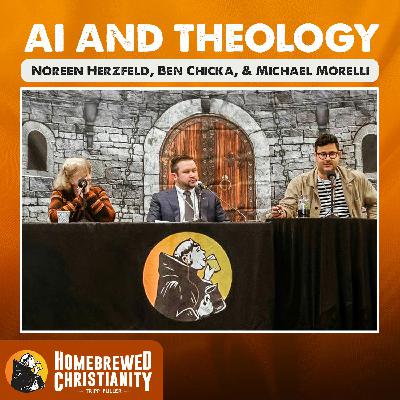
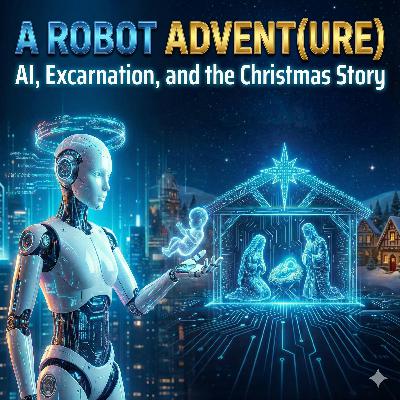
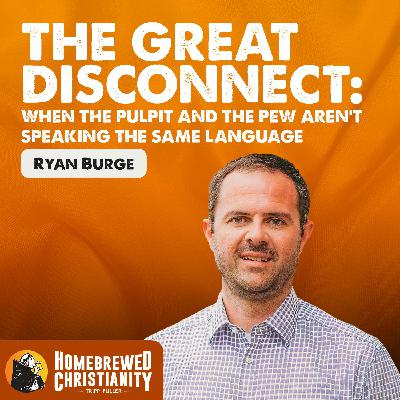
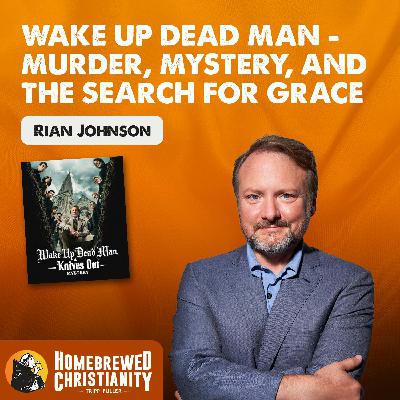

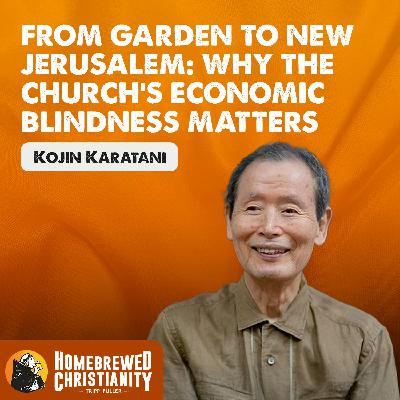
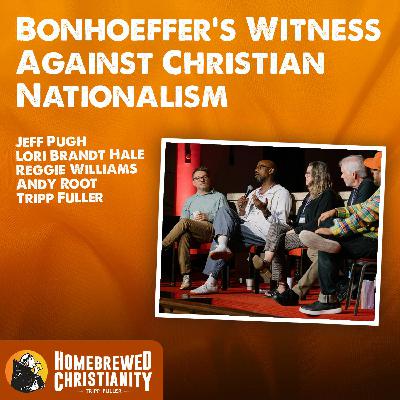
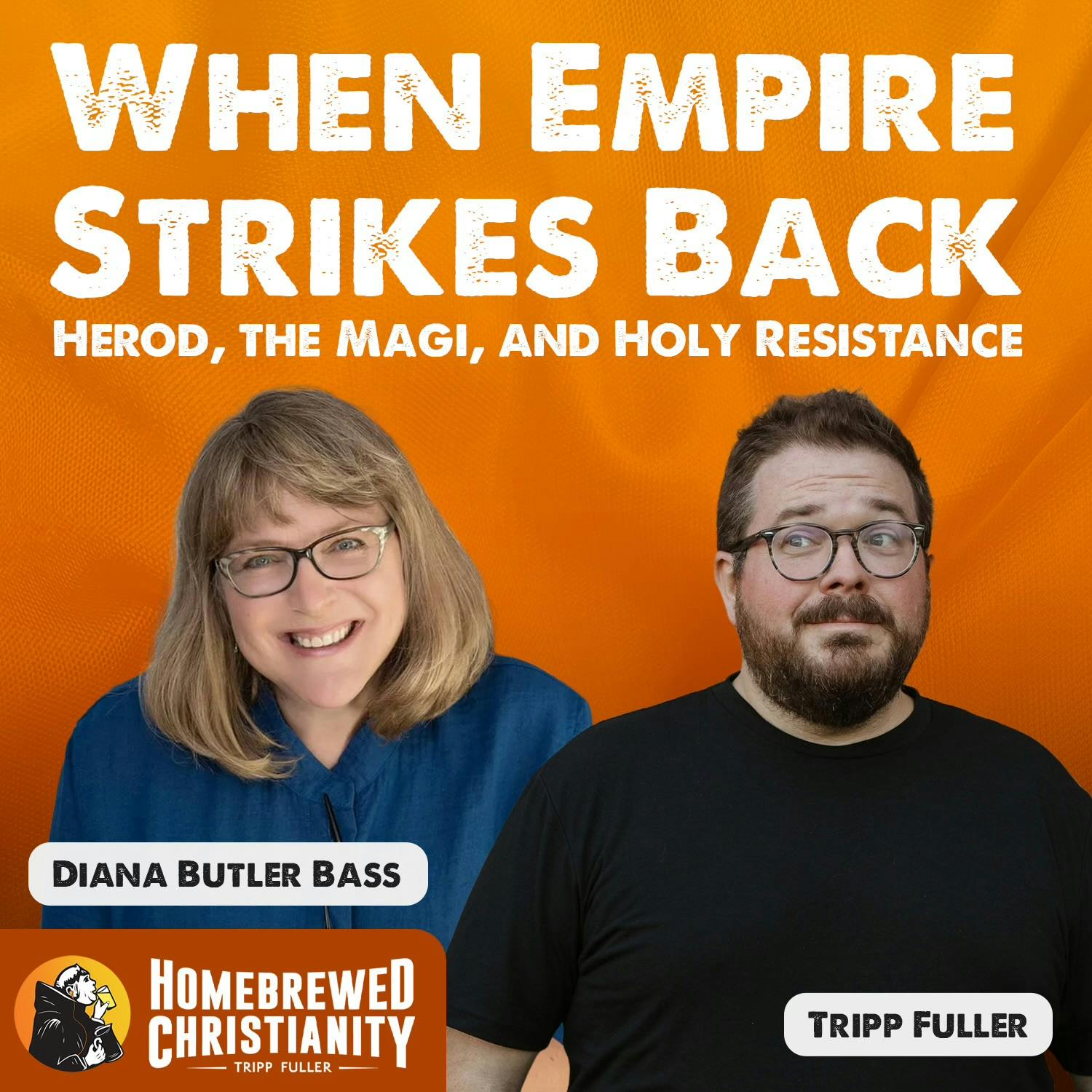

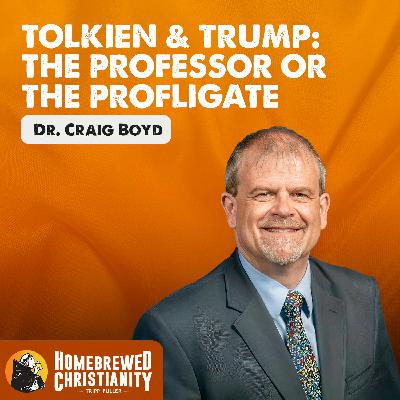

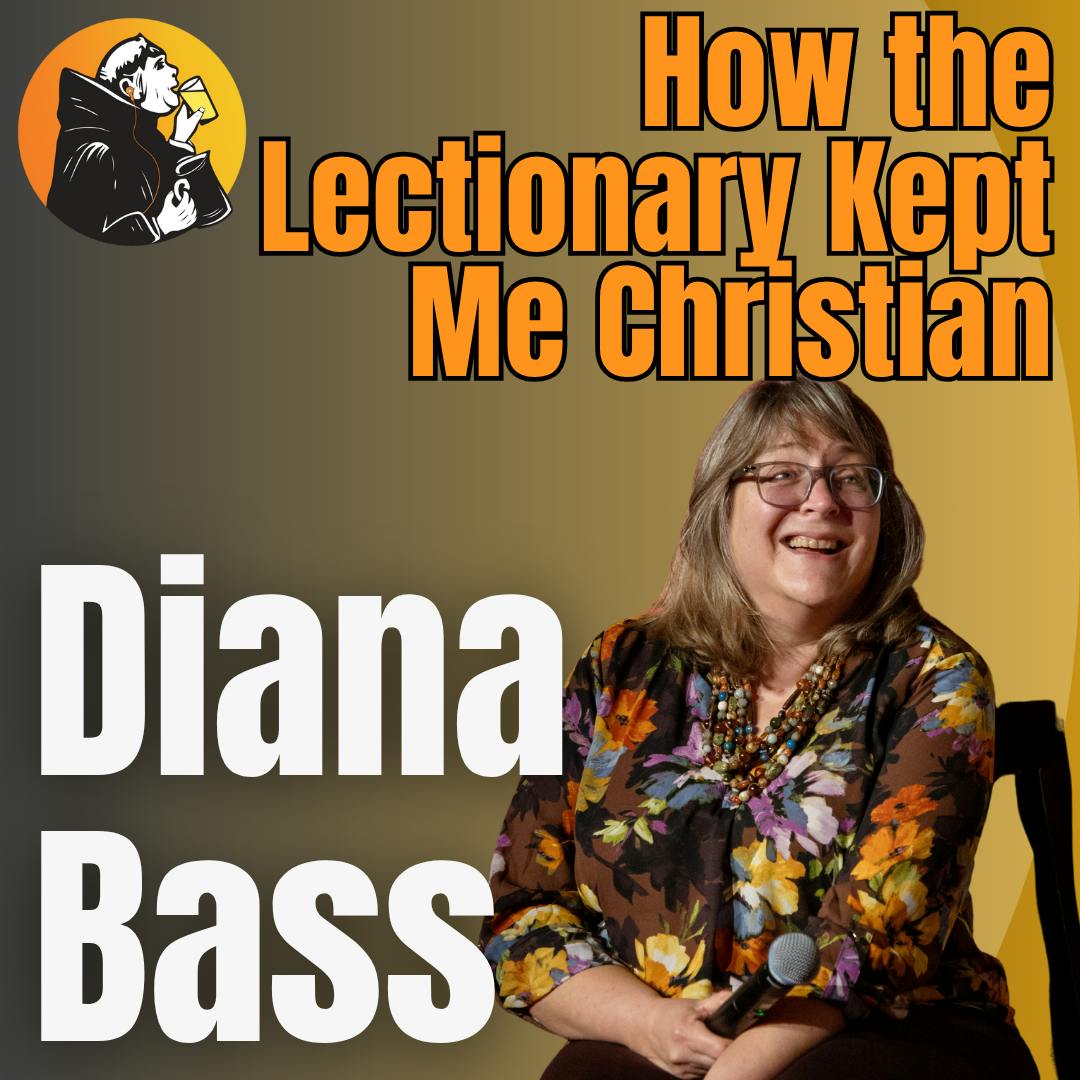
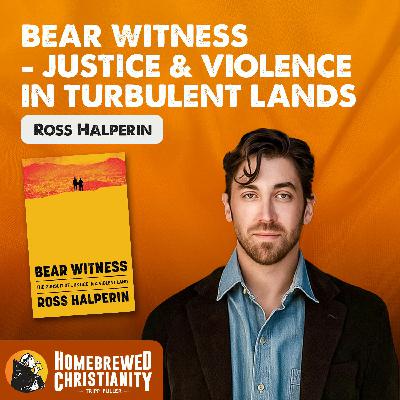
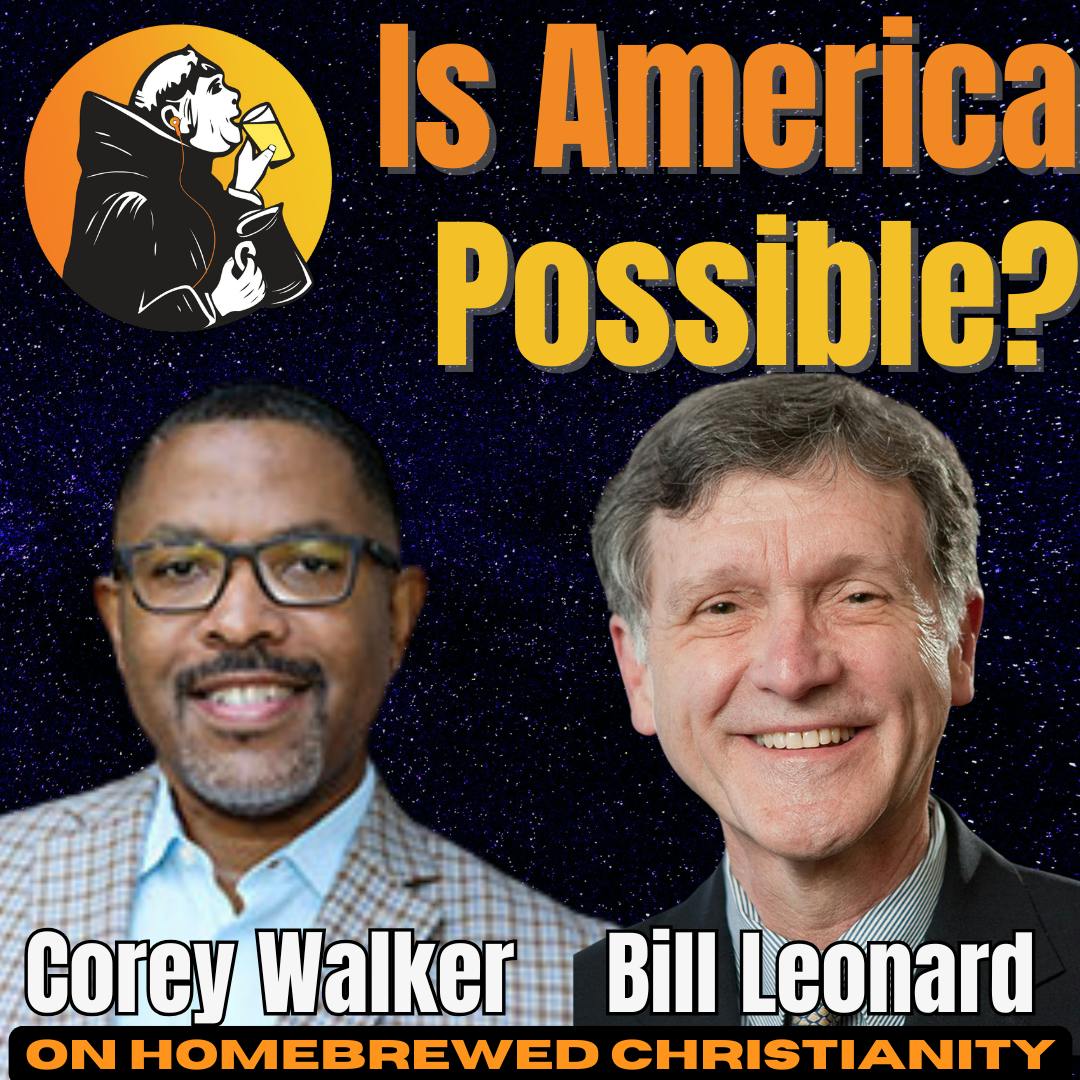

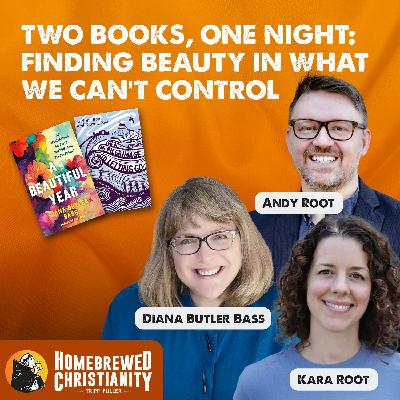





The situation in Palestine is a televised holocaust and any Christian who approves or maintains indifference is on the level of a Nazi collaborator. To say nothing of the anti-Trump progressive Christians who conveniently found reasons to support the Biden administration and subsequent Harris campaign in the midst of carrying out this bloodbath.
shit, it has been 15 years.
The land is a part of our spirituality because it represents an alternative symbol of the ancestors who are always present as the life and spirit we can connect to in nature as the living and spiritual reality of the land. 33:38
African mystical perspective of God as a powered energy or spirit that we can connect to at any moment. This led to a pantheism or panentheism that is similar to Sally McFague’s perspective of the universe as God’s body. 32:04
In a secular sense, we are constantly looking forward to a better future. In a theological sense, we are looking back at the past. When are we in the now, in the present moment? 17:24
MSNBC is garbage. Diana is a first-rate intellect but her incessant libbery is troubling. Recommending Bill Kristol's podcast 😠
David Brooks fucking sucks.
I gave it a shot. First episode is full of Biblical misunderstandings. Maybe spend more time in the Bible. Blessings to all.
Nonsense. French Enlightement was influenced by British thought. Major figures of French Enlightement pretty much worshipped everything British.
This was a fabulous episode. Loved Tripp's description of sacred practices.
this guy has a tiny, tiny penis.
Thanks nerds, The argument that God is distant and only resides in the philosophical if God doesn't get angry, as a way of justifying the acts that God commands and allows, in the OT, is weak. I agree God is angry and unhappy with many of the ways we behave BUT God rarely if ever resorts to punishment and then only when it doesn't significantly or permanently harm those punished. This means we have to treat with great suspicion, parts of the Bible that do suggest that is how God behaves. In fact we must admit that these represent a significant misunderstanding of God. Blessings.
Tripp sounds so bored in this podcast.
lol @ respecting David Brooks